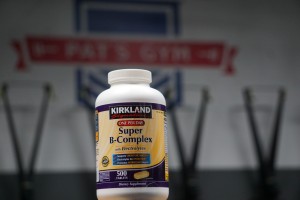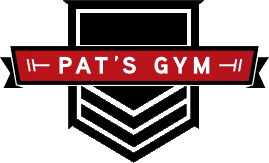 If you haven’t tried vitamin B12, you should consider it. It may not only give you that burst of energy you’ve been waiting for, but it will actually help your workouts. Even though you may be eating the right foods, you may still be vitamin B12 deficient.
If you haven’t tried vitamin B12, you should consider it. It may not only give you that burst of energy you’ve been waiting for, but it will actually help your workouts. Even though you may be eating the right foods, you may still be vitamin B12 deficient.
Workouts deplete energy, water and minerals. I’ve written in past Knowledge Post that immediately after a workout, you should begin refueling because it will help repair your muscles and will help you with energy, and hydration. Vitamin B12 also plays a role. You can take Vitamin B12 before or after your workout. You won’t immediately notice the benefits, but over time you will.
Vitamin B12 is a water-soluble vitamin part of a group of eight B vitamins. This group of vitamins, also called B-complex vitamins, is necessary for healthy skin, hair, eyes and liver. Vitamin B12 helps you maintain healthy nerve cells and red blood cells (which carries oxygen in red blood cells), and proper immune function. It also assists in the production on DNA and RNA which helps to avoid the promotion of cancer.
Deficiency in vitamin B12 can occur in vegans, athletes who restrict food intake and older people who have diminished ability to absorb the vitamin from their stomachs. You need only slightly less vitamin B12 than normal to feel the symptoms. To find out if you are deficient in vitamin B12, you must have a blood test.
Vitamin B12 assists your body in converting carbohydrates into glucose. Your body uses this glucose for energy. Before exercise, you need to consume carbohydrates to have the energy to get through your workout. If you have a B12 deficiency, these carbohydrates will not properly be converted into energy, which will leave you feeling fatigued and unable to finish your workout. Also, since B12 aids in immune function, you may not feel well enough to exercise or you may be more susceptible to germs from your local gym if you have a deficiency.
Symptoms of vitamin B12 deficiency are anemia, weakness, fatigue, constipation, decreased appetite, numbness and tingling in the hands and feet. Difficulty in maintaining balance, depression, dementia, poor memory, and soreness of the mouth or tongue can also be the result of low vitamin B12.
Your daily recommendation for vitamin B12 is around 2.4 mcg. It is found in animal foods, such as, fish, shellfish, dairy products, eggs, beef and pork. An example of a day’s supply of B12 is one chicken breast, one hard-boiled egg and one cup plain low-fat yogurt. Adults over the age of 50 may benefit from taking a B12 supplement or eating foods fortified with vitamin B12.
Most clinical studies have concluded that vitamin supplementation is beneficial only in preventing or correcting deficiency. Supplementation can come in the form of prescription shots or gel. If your ability to absorb vitamin B12 has not been compromised, you can also correct deficiency with 1 to 2 milligram tablets bought over-the-counter.
